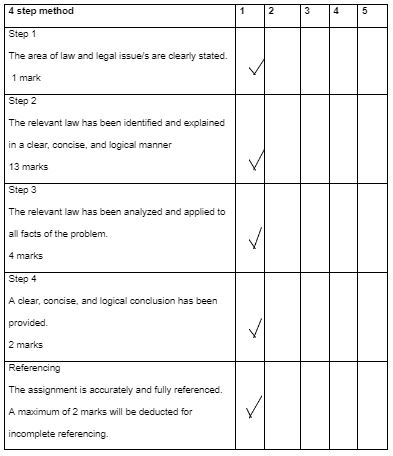Introduction
Basically, it is perceptible that technology has played an elemental role in accounting as well as in fiscal enterprises. “The fundamental merit of these web-based tools is that they enable someone to make an effective decision as he/she is able to access real-time information” (Fox, 200, p.14).
As regards monetary services firms, management of individual funds or organizational assets are deemed to be wearisome and disheartening but a fiscal system that is computerized is supposed to simplify this task. Ideally, there exists a lot of accounting and monetary software in the current market and their prices kowtow to the fiscal capacity of a particular organization. Pecuniary software tools encompass the Straight-Thought Processing and Technical Critique Software. Similarly, a better example of accounting software is Microsoft Office accounting. The book-keeping software is palpably being utilized by the accounting information system. Similarly, monetary software is appreciably being utilized by the inter-operability of clerical processes in a firm.
Nonetheless, there exist a number of options that professionals, who opt to utilize these software tools, can select and then employ them in carrying out pecuniary services. As a matter of fact, incremental perfections in terms of functionality and alacrity have been brought about by software development. Nevertheless, the monetary software tools are able to permit insights into fissures and alcoves of those organizations that implement them. To that effect, the monetary software applications ought to be perilously scrutinized to determine where they fit best (Keyes, 1998).
Problem Statement
The focal point of the swot up will be on how the monetary software along with the software of accounting is deemed to be effectual. Doing so will also scrutinize how organizations can merit from this software and how the functionality of this software can enhance the optimization of the accounting and monetary processes. The scholarly work will make an effort to respond to the queries below:
- Are we capable of accomplishing the processes of enterprises the moment we employ the tools of monetary software?
- Are the tools of monetary software constructive to the majority of firms?
- How can the economic expansion of a firm be augmented by these tools?
- Are the tools of monetary software prejudicial to firms?
Objectives of the Research
This research will aim at illustrating critique elucidations on the effectiveness level that the organization can benefit from the monetary software tools. This research will address the following objectives:
- To delineate the drawbacks and merits of the monetary software tools that have an impact on how business is conducted by organizations.
- To scrutinize how these monetary software tools are able to offer eminence to the conduct of the organization and thus enable that organization to be successful.
- To delineate the efficacy parameters of these software tools.
Review of Past Literature
The scholarly work will re-evaluate precedent literature apropos to this swot up. In consequence, the literature-review section will be engrossed in the scholarly work’s second chapter whereby it will scrutinize precedent documents and then elucidate the literature, which correlates to this swot up. This will encompass past literature from those scholars who proposed accounting and monetary tools with the aim of optimizing the endeavors of a business. Moreover, literature depicting the accounting and pecuniary firms will be critiqued. Ultimately, the study will also scrutinize the literature that rejects or elucidate how a business can merit by utilizing the monetary software tools (Gorton, & Metrick, 2011).
Research Design
The operation of my research will be within the design because the collection of data will be on the basis of a particular case which will employ: document critique, observation, structured interviews, and questionnaires. This will be of benefit in essence that it will enable me to concentrate on the broader perception of this study. In fact, by widely exploring the research topic, I will be escalating the straightforwardness and legitimacy of my study and thus, minimizing the bewildering variables.
Data Collection
This swot up will utilize secondary as well as primary methodologies of collecting data. As regards primary research, the staff of six organizations that presently utilize the monetary software tools will be surveyed by the study. I will develop a structured questionnaire and then utilize it in the study. The swot-up questionnaire will swathe queries that are theoretical, as well as a Likert scale that has 5 points. The secondary methodologies that will be utilized in this swot-up will encompass journal contents along with reports from past swot-ups. Secondary research is usually deemed to be qualitative (Ivashina, & Scharfstein, 2010).
Data Analysis
While critiquing secondary data, a scrutiny that is deemed to be qualitative will be employed. On the other hand, the frequency analysis formula will be utilized while critiquing primary data, that is:
- Percentage – will be used in determining the enormity of the questionnaire response

- Weighted-Mean

Conclusion
The presentation of the research will be in written form. Also, the research findings will be presented using data charts. In order to illustrate the critiqued data, the research will need network charts as well as pie charts (Saunders, 2003). However, I cannot corroborate this until data analysis is completed.
References
Fox, J. (2001). Building a Profitable Online Accounting Practice. John Wiley and Sons Publishing.
Gorton, G., & Metrick, A. (2011). Securitized Banking and the Run on the Repo. Journal of Financial Economics, 104(3), 425–451.
Ivashina, V., & Scharfstein, D. (2010). Bank Lending during the Financial Crisis of 2008. Journal of Financial Economics, 97(3), 319–338.
Keyes, J. (1998). Handbook of Technology in Financial Services: 1999. Boca Raton, FL: CRC Press
Saunders, M. (2003). Research Methods of Business Students. London: Prentice Hall Financial Times.